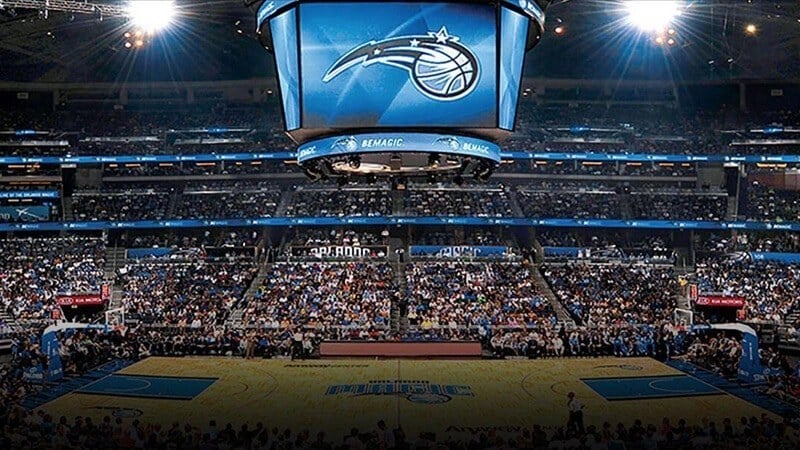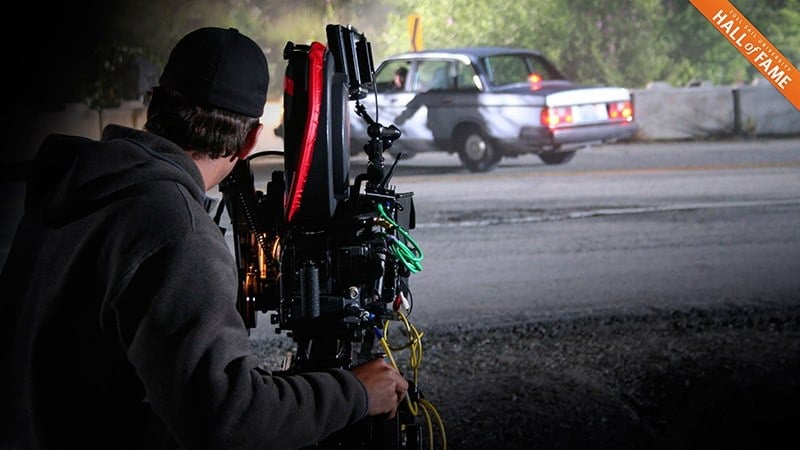Pro Advice
A Movie Editor's Tips for Surviving Hollywood
Advice for film students on editing, networking, and thriving in the film industry
Vashi Nedomansky is an American Cinema Editor with credits on films and TV shows like Gone Girl, Deadpool, House of Cards, and The Good Doctor. He's collaborated on projects with major Hollywood directors and cofounded his own business, VashiVisuals.
During a presentation at Full Sail’s Hall of Fame Week, Vashi shared his experiences and offered a range of useful advice to students, including these nine valuable tips for aspiring film editors.
1. Networking Gets Work
"The most important people here are the ones around you," says Vashi. In fact, some of the first projects Vashi was a part of were alongside Full Sail grads like Brett Novak, and, as Vashi explains, "there's probably going to be a Full Sail alum somewhere, and that's a really powerful group to maintain contact with and forge a relationship with.”
2. Break Down Tasks into Smaller Components
According to Vashi, "the average film has 1300 cuts... 1300 pieces to an invisible puzzle... with endless combinations." Editing a film can be an overwhelming task, so to stay in the right frame of mind and do your best work, Vashi says organization is key. "That happens first and foremost and has to happen before you even push a button."
"Always break it down into the smallest components that you can manage," he says. That means organizing the information, assets, knowledge, and communication with producers, directors, and other creatives on the project into distinct and easily manageable bits.
3. Make Every Edit Count
According to Vashi, "pretty good" is never good enough for an editor. He advises students to set a higher bar for themselves personally if they want to work in Hollywood and beyond. "It has to be as close to perfection as you can get within the time constraints," he says.
"Every edit is the most important decision at that moment. That one decision affects every cut before and after it. That one decision can make or break the entire story."
4. Sound Is the Glue
Because sound can make or break a cut, Vashi recommends spending a substantial amount of time on perfecting audio. For him, it's all a part of keeping the audience in the moment. "You want it to be seamless," he explains. "You want the viewers to be engrossed and caught up in the moment. And audio will help you get there a lot faster."
5. Protect Yourself
Vashi is candid about his experience with disappointment in the industry, or "tales from the trenches." He tells students about a time he wasn't paid for work he completed because of paperwork technicalities, warning them to prepare for moments like this. "Sometimes you'll get screwed, and that's absolutely normal and part of the game," he says.
6. Always Be Open to Opportunities
"I almost never say no," says Vashi about his time starting out as a filmmaker. He says that by being willing to jump onto new projects -- even the trivial or lesser known ones -- new filmmakers can set themselves up to meet the right people and open more doors down the road.
7. Find Your People
It's important to find who you work well with and build a core group of producers and directors you can trust. He uses Thelma Schoonmaker, the film editor that's partnered with Martin Scorsese for over 50 years, as an example.
The trust you build in these relationships takes off the pressure to constantly prove yourself with each new job, he explains. Instead, it makes you a stronger, more intuitive team. "Those relationships last forever," says Vashi, "and it makes both people more powerful and a better film maker."
8. Absorb As Much As Possible
As the film editor for Sharknado II, Vashi says the movie gets a lot of snickers when he mentions it, but in reality, he learned a lot about being an editor behind the scenes. He praised the team's ability to deliver on time, on budget, and to make money with the majority of their films. In fact, he says the post-production setup and level of organization on Sharknado II surpassed some of the biggest films he's worked on.
9. Edit from the Heart
"Film editing is a mechanical process. Storytelling is an emotional craft that benefits from life experiences," says Vashi. While understanding technique and knowing how to use all of the right tools and software is imperative, he says, "everything else is purely emotional." He encourages students to approach editing "with the heart and the gut."
Watch the full video below to learn more about Vashi’s career, his technical editing tips, and even more lessons for success.
Want to learn more? Explore our film and television degree programs.
Whether you’re ready to apply or just want to learn more about Full Sail University, our Admissions Representatives are here to help. Call us or request more information.
Keep Exploring
- Sports Management
- International
- Accolades & Awards
- Game Development
- Real-World Experience
- User Experience
- Film Production
- Creative Writing
- Military
- Esports
- Hall of Fame
- City Guides
- Games
- Simulation & Visualization
- Emerging Technologies
- Course Stacks
- Media & Communications
- Student Support
- I Made This
- Events
- E-book

